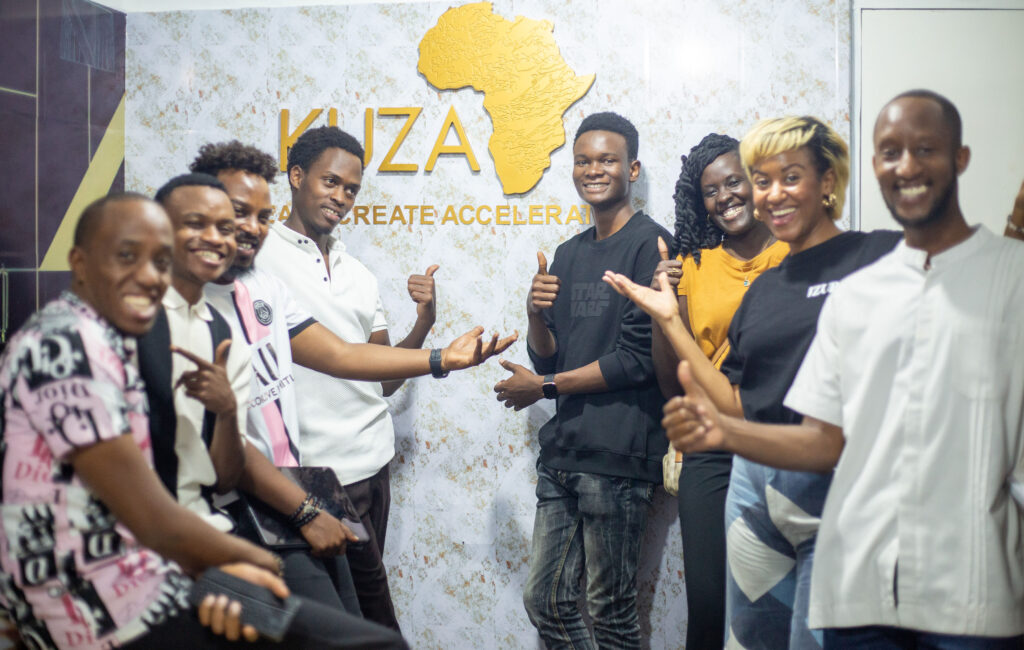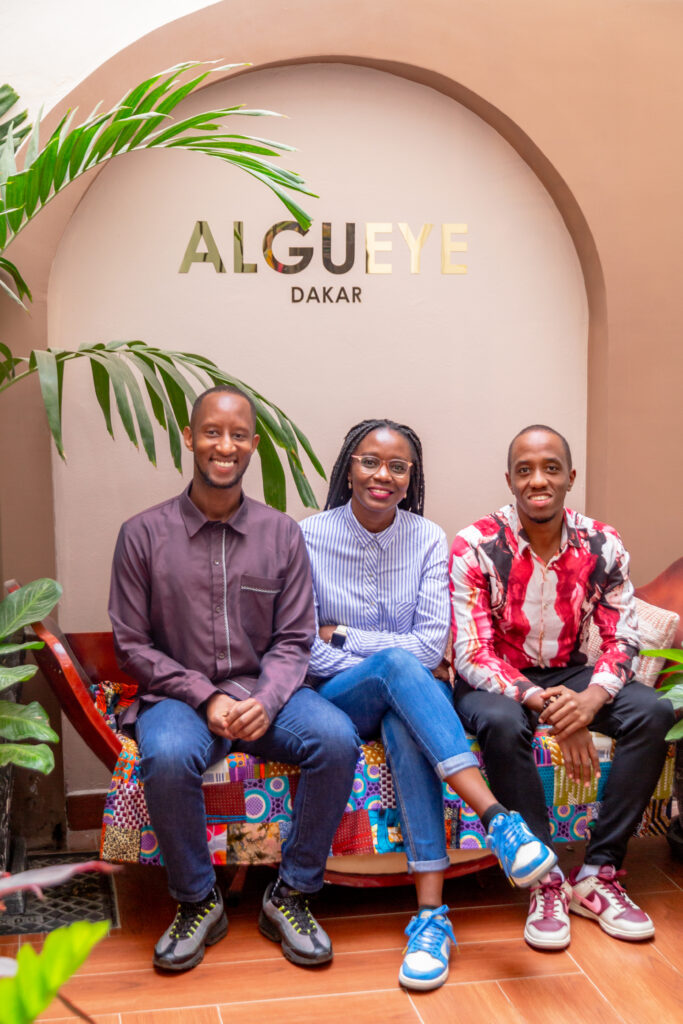
In 2022, three Rwandan visionaries—Bruce Sakindi (Lead, Sales), Grace Ussenge (Lead, Operations), and Maximilien Kolbe (Lead, Strategy)—came together with one unshakable belief: Africa’s creative future deserved more. More opportunity. More visibility. More support. With that conviction, they founded Kuza Africa, a platform designed to bridge the gap between untapped creative talent and the tools, networks, and resources required to thrive.
What began as an ambitious idea in the heart of Kigali has grown into a movement—one that’s reshaping Africa’s fashion landscape and shifting how the world sees African creativity. From fashion design to business acumen, from sustainability to global exposure, Kuza Africa is equipping a new generation of creatives to build lasting, future-forward businesses.
“Our journey began with a simple but bold goal: to give talented individuals in Africa the chance to thrive in the global fashion scene,” says Grace Ussenge, co-founder and Chief of Operations at Kuza Africa. “We realized that while Africa is rich in culture, craftsmanship, and creativity, there was a significant barrier in terms of access to resources and opportunities. Kuza exists to change that.”
A Vision Rooted in Potential
At the heart of Kuza Africa’s mission is a powerful idea: that Africa’s fashion industry holds untapped potential not only to participate in global conversations—but to lead them. Across the continent, fashion is deeply intertwined with identity, culture, and storytelling. The craftsmanship is exceptional. The creativity is boundless. But without the right infrastructure, many designers struggle to transform their talent into sustainable careers.
Kuza Africa was founded to tackle this challenge head-on. The organization offers comprehensive programs that combine technical training, entrepreneurial education, and access to technology—ensuring that aspiring designers aren’t just creating, but building viable businesses that can scale, grow, and sustain impact.
A Community, Not Just a Platform
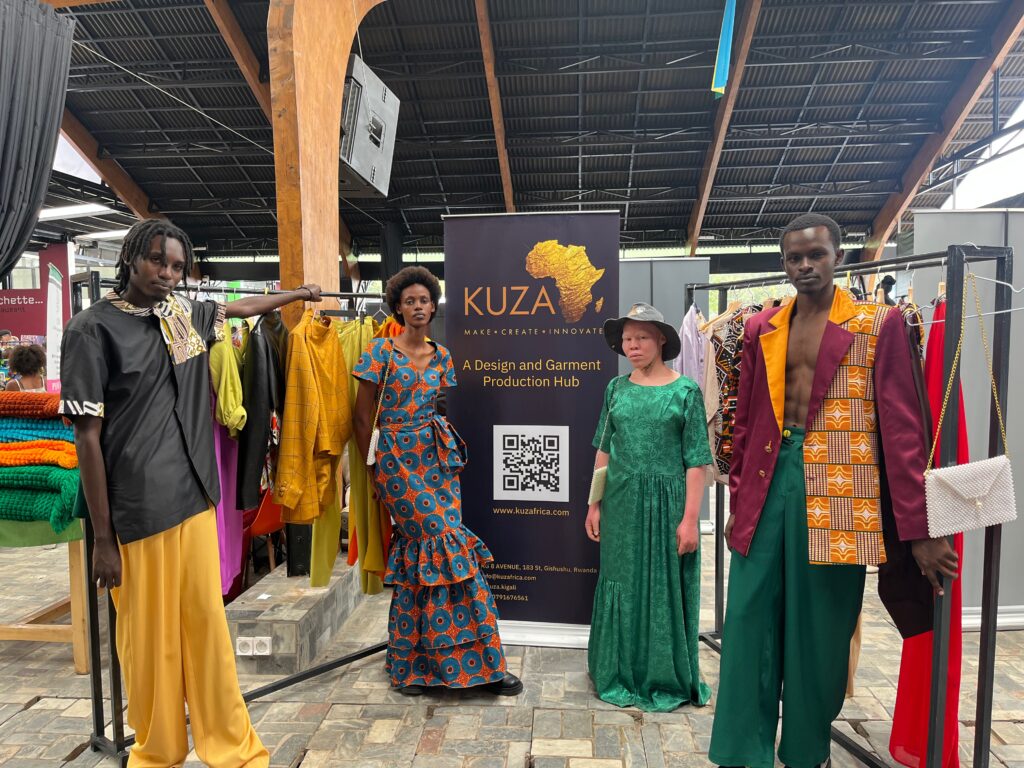
Kuza Africa is more than a launchpad for fashion entrepreneurs. It is a collaborative ecosystem—a dynamic, inclusive community where creatives can connect, experiment, and grow together. The organization goes beyond teaching skills. It nurtures a mindset of innovation, sustainability, and social responsibility.
Through partnerships with global educators, industry leaders, and creative professionals, Kuza brings world-class knowledge and experience to local designers. Whether it’s a masterclass on sustainable design or a workshop on brand storytelling, every initiative is rooted in one goal: to prepare African creatives for long-term success.
“We are creating an ecosystem of collaboration,” Grace explains. “Our goal is to support creatives throughout their journey, offering them the tools and networks they need to succeed. From the very beginning, we’ve focused on building an environment where aspiring designers can connect, learn, and grow together.”
Programs range from intensive design labs to marketing strategy sessions, all designed to help creatives understand every facet of the fashion business—from concept to consumer. It’s about building more than clothing lines—it’s about building brands that last.
Sustainability at the Core
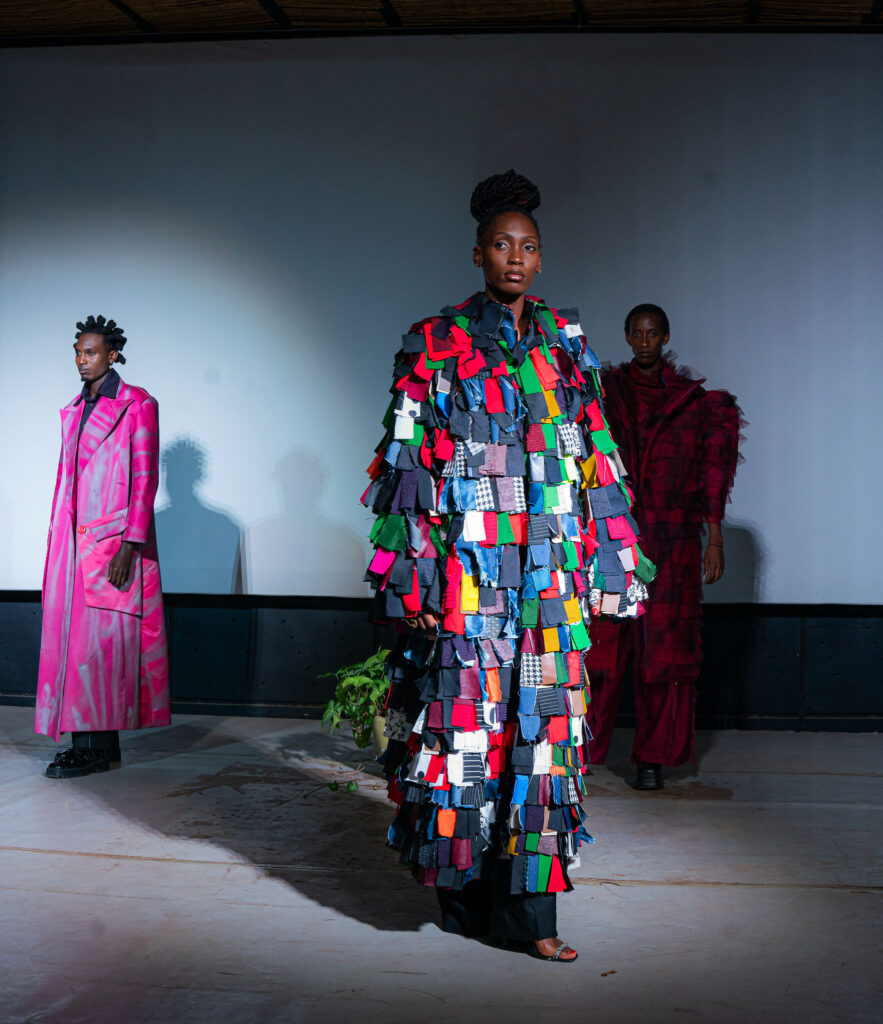
As the fashion industry grapples with its environmental impact, Kuza Africa is positioning African designers at the forefront of sustainable innovation. Sustainability isn’t treated as an afterthought—it’s built into the fabric of everything Kuza does.
From the start, the organization has championed circular design principles: upcycling, material reuse, digital design, and low-waste production methods. Designers are encouraged to rethink the life cycle of every product, from initial sketch to end-of-use.
“Our focus on sustainability is not just a trend,” says Grace. “It is an essential part of the future of fashion. We want to teach young designers to think about the entire lifecycle of their products—from design to production to disposal. It’s about creating a fashion industry that not only celebrates African creativity but also contributes to a healthier planet.”
This commitment to sustainability goes beyond curriculum. It influences every aspect of Kuza’s operations and partnerships, encouraging designers to embrace slow fashion, choose ethical materials, and build practices that regenerate rather than deplete. The result? A new wave of fashion entrepreneurs who understand that their work can have both aesthetic and environmental impact.
Comprehensive Training and Mentorship

Kuza Africa’s programs are designed to offer end-to-end support—meeting creatives where they are, and guiding them through each stage of their journey. These programs are tailored to reflect the unique challenges and opportunities within Africa’s fashion ecosystem:
Fashion Design Masterclasses: In-depth, hands-on sessions where participants learn the full design process—from sketching to pattern-making and product creation.
Business Skills for Fashion Entrepreneurs: Courses on financial management, marketing, branding, and e-commerce that help designers navigate the business side of fashion with confidence.
Product Development and Innovation: Practical training in transforming creative concepts into commercially viable products, including material sourcing, prototyping, and production strategies.
Sustainable Fashion Practices: A strong focus on integrating eco-conscious design from the beginning, with training on circular production, upcycling, and ethical material use.
Infrastructure Access: State-of-the-art creative spaces and cutting-edge technology that allow designers to prototype, produce, and scale their ideas professionally.
Funding Support: Guidance and networking opportunities to help creatives secure grants, investors, and capital for business growth.
Each element is intentionally crafted to ensure designers are equipped with both technical skills and the entrepreneurial mindset to thrive in a competitive market.
The Circular Revolution
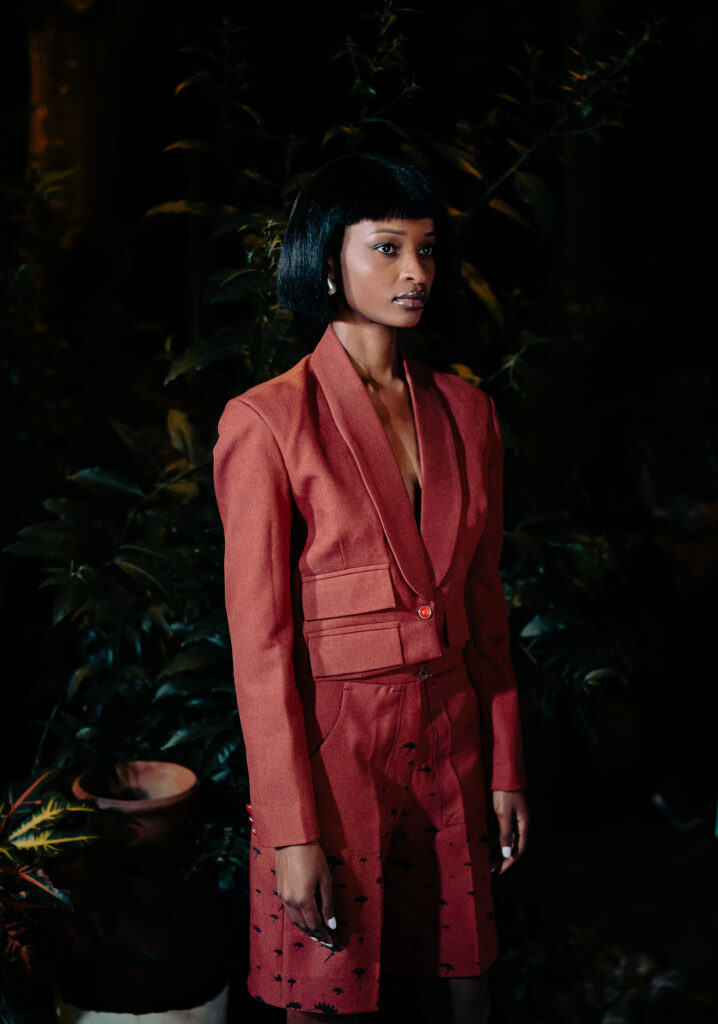
A cornerstone of Kuza Africa’s long-term vision is its unwavering dedication to circularity and environmental stewardship. The organization is not only teaching sustainability—it’s catalyzing a cultural shift within Africa’s fashion industry. Designers are trained to see waste as opportunity, to explore innovative materials, and to embed sustainability into their brand DNA.
This commitment has inspired a new generation of fashion entrepreneurs to redefine what success looks like—not just through revenue and recognition, but through regenerative practices that give back to communities and the environment.
Through circular design workshops, resource-sharing models, and creative recycling initiatives, Kuza Africa is making sustainability both practical and aspirational. It’s proving that beautiful design and responsible production can go hand in hand—and that Africa can lead the charge in defining what a sustainable fashion future looks like.
Expanding the Vision: Why Senegal or Kenya?
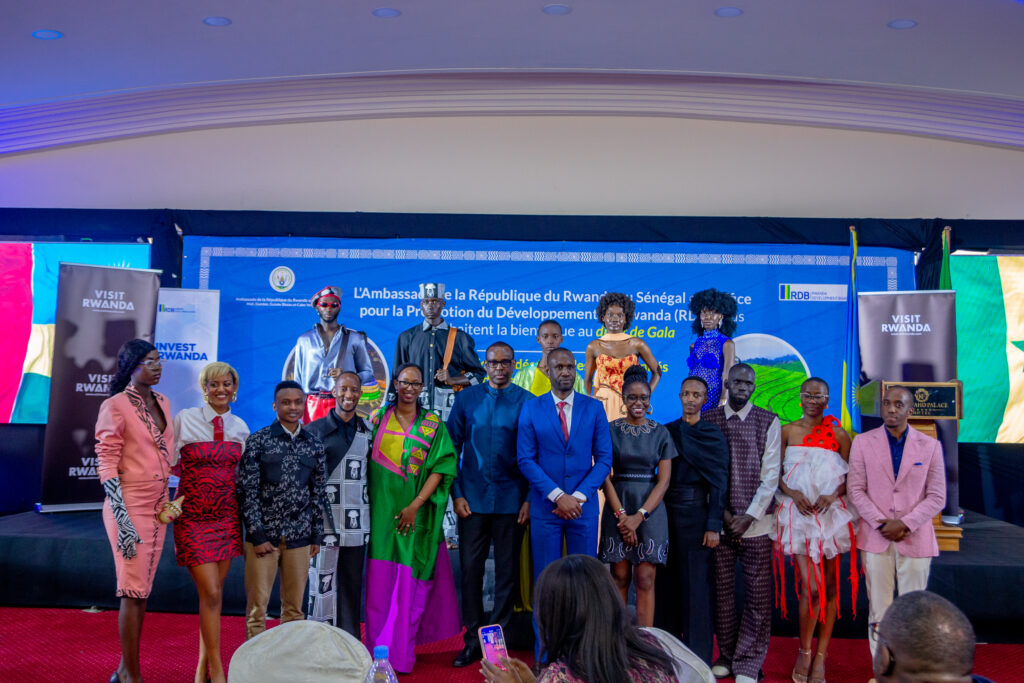
As Kuza Africa gains momentum, the team is looking toward the future—ready to expand their impact beyond Rwanda’s borders. The next chapter is already being written, and two countries stand out as strong contenders: Senegal and Kenya.
Senegal, with its rich history of textile artistry, vibrant cultural identity, and strong Pan-African creative spirit, is an exciting choice. The capital city, Dakar, is quickly emerging as a fashion and design hub, hosting events like Dakar Fashion Week and fostering a growing community of contemporary designers who are blending tradition with modernity. Its francophone ties also create a unique bridge to West African markets and European networks, opening up new channels for African design to gain international traction.
Kenya, on the other hand, offers a dynamic entrepreneurial environment and a growing ecosystem of tech-savvy creatives. With Nairobi serving as a leading innovation capital on the continent, Kenya’s fashion scene is bolstered by a wave of socially conscious designers and start-ups who are eager to scale sustainable brands. Kenya’s vibrant youth population, combined with its investment in digital infrastructure, makes it a fertile ground for fashion-tech integration and rapid community growth.
Both countries reflect Kuza Africa’s core values—creativity, sustainability, and community—and present a natural next step for scaling the impact of their programs. Whether it’s tapping into Senegal’s artistic heritage or Kenya’s innovation-forward energy, expansion into either country would bring Kuza’s dream of a continental creative movement one step closer to reality.
The Future of Fashion in Africa
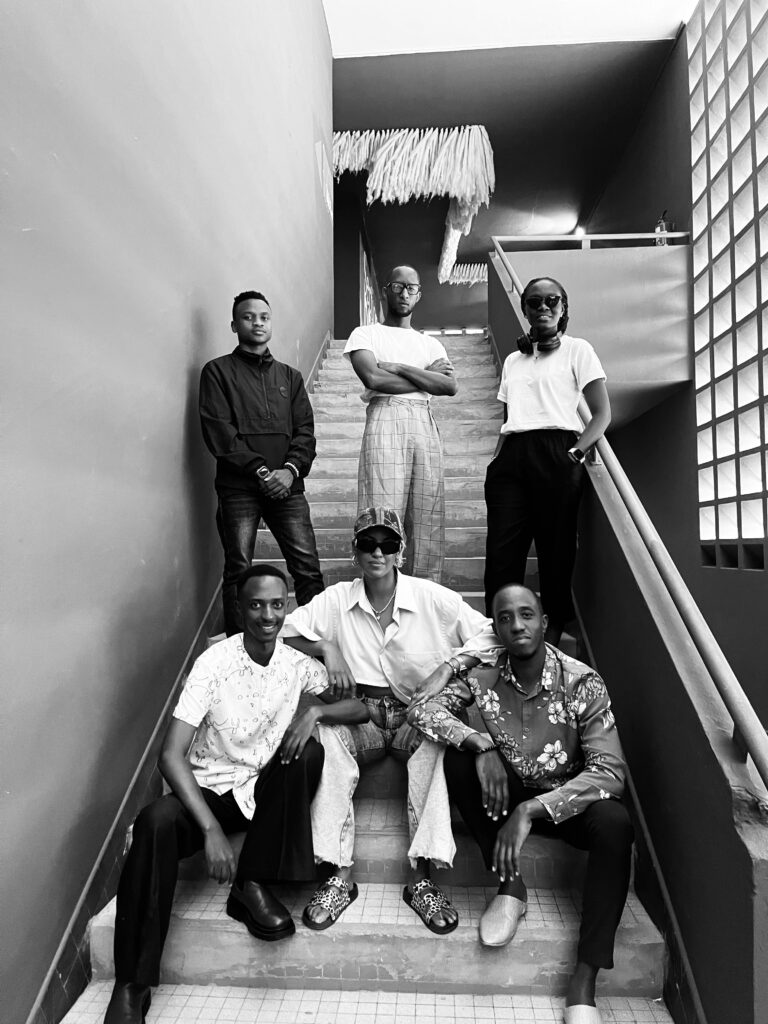
As Kuza Africa continues to grow, so too does its vision for the future. The organization is building more than a platform—it is laying the foundation for a continent-wide creative revolution. A revolution where young designers don’t have to choose between purpose and profit. Where local talent is recognized, celebrated, and invested in. Where fashion is used as a force for social, cultural, and environmental transformation.
“We see a future where African fashion is not only a part of global conversations but leads them,” says Grace. “Our dream is to build a vibrant, innovative, and sustainable fashion ecosystem that empowers creatives, uplifts communities, and creates a lasting impact.”
Kuza Africa is not waiting for the world to notice Africa’s creative brilliance. It’s building the networks, nurturing the talent, and shaping the future—one designer, one garment, one community at a time.
In a world where fashion is often disposable, Kuza Africa is cultivating an industry grounded in purpose, creativity, and resilience. And as the global fashion narrative continues to evolve, it’s clear that Africa—through organizations like Kuza—is ready to take center stage.
